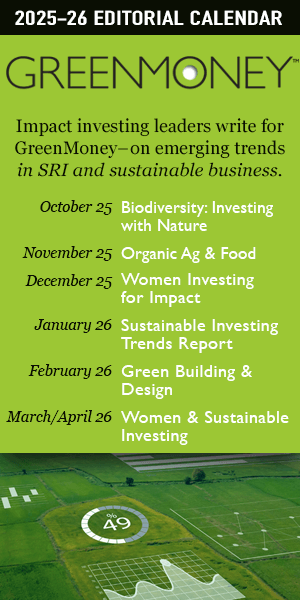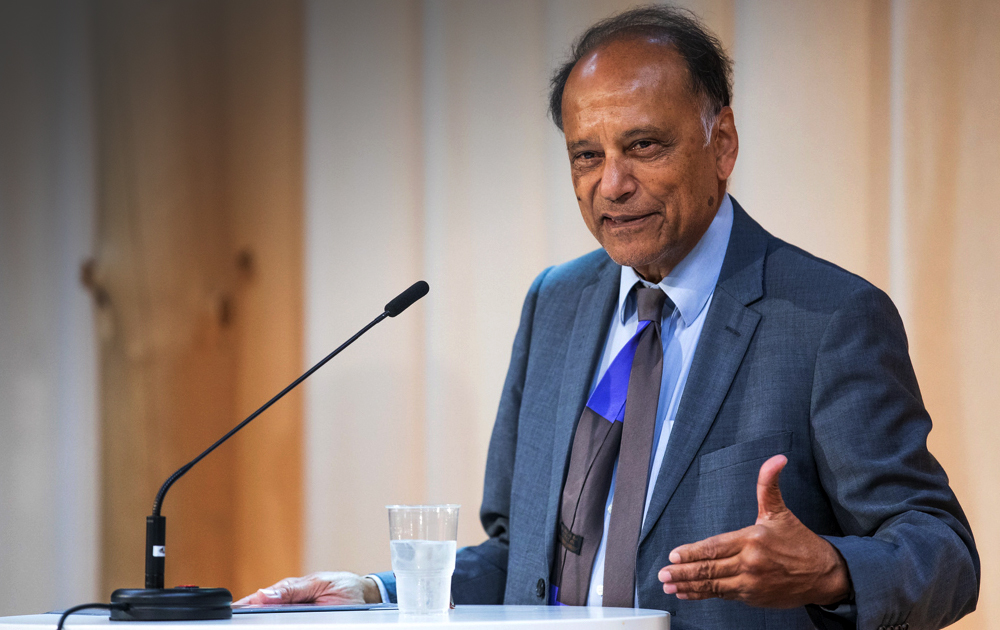 For investors interested in environmental, social and governance (ESG) strategies, a regionally diversified approach can help capture global growth. In the coming year, Asia offers a prime opportunity to invest in profitable companies addressing critical ESG challenges through robust and sustainable business models. ESG innovation in Asia is evident across many sectors, including health care and pharmaceuticals, technology, finance and alternative energy. To fully capture the growth and profits of the world’s most innovative ESG companies, it is worth considering Asia. Here, we identify three ESG trends in Asia to watch in 2019.
For investors interested in environmental, social and governance (ESG) strategies, a regionally diversified approach can help capture global growth. In the coming year, Asia offers a prime opportunity to invest in profitable companies addressing critical ESG challenges through robust and sustainable business models. ESG innovation in Asia is evident across many sectors, including health care and pharmaceuticals, technology, finance and alternative energy. To fully capture the growth and profits of the world’s most innovative ESG companies, it is worth considering Asia. Here, we identify three ESG trends in Asia to watch in 2019.
Trend #1: Environmental Solutions That Generate Clean Air—and Profits
While electric car maker Tesla garners headlines for its stylish design ethos and lengthy waiting lists, Asia has quietly dominated the global battery cell market with its innovative and reliable lithium-ion batteries and other critical components. (See Figure 1.) Global leadership in battery cells belongs almost entirely to companies headquartered in South Korea, Japan and China. Why is this so? Partly it is because Asia has historically dominated manufacturing of consumer electronics that required rechargeable battery technology development and partly because Asia accounts for a significant portion of new electric vehicle sales. China is currently the world’s largest market for electric vehicles, with the U.S. coming in a close second. Of the 2 million electric cars on the road in 2016, 32 percent were driven in China, while 28 percent were driven in the U.S. Japan and France each represent approximately 7 percent of the electric vehicles on the road[1].
Battery cells are just a small part of the innovative sectors helping to power a cleaner energy future, including solar and wind power, energy efficiency, high-speed trains and factory automation. Solar panels are another area in which Asia in general, and China in particular, is taking a clean-tech industries leadership role. China makes 70 percent of the world’s solar panels and installs more than half of them[2].

Trend #2: Small Loans—With the Potential for Big Returns
Among critical social issues facing communities in Asia, inclusion is a key focus area. Social progress requires bringing more people into the middle class globally, along with ensuring greater access to health care, more women in the workforce and more opportunities for people to advance through education and training. Moving hundreds of millions of people out of poverty has been the foundation for social advancement. It has also presented a prime opportunity for global investors who wish to support this progress by investing in companies championing inclusion in Asia’s fast-growing economies. As a starting point, living a middle-class life requires becoming part of the “formal” financial system, often by opening a bank account. Millions of people across Asia lack basic banking services. Credit, even in small amounts, can make a huge difference to families living in poverty. Microlenders are leveraging digital platforms to massively scale up lending without the need to build large brick-and-mortar infrastructure.
As Asia looks to add 2 billion more people to its middle class by 2030[3], financial inclusion will be a key enabler for this transformation by creating and supporting livelihoods. Profitable companies servicing this need provide microlending, micropayments and insurance. In 2017, India had 45 million microborrowers, demonstrating the size and scale of this growing marketplace. (See Figure 2.) Most jobs in emerging Asia are found in micro and small enterprises. Access to capital through financing makes a big difference in the ability of these firms to grow and create more jobs. Therefore, micro and small enterprise lending is an underappreciated social opportunity. Bangladesh and Indonesia are fast-growing markets for micro and small enterprise lending.

Trend #3: Access to More Affordable Health Care
Asia ESG investing offers a big opportunity to make a global impact simply because of the sheer number of lives affected. South Asia has over 1.5 billion people who spend less than US$100 per year on health care on average[4].
Given the population’s lack of spending power, providing access to affordable health care is a critical social issue. South Asia has millions of people with Hepatitis C, for instance, but few, if any, have been able to afford Gilead Science’s highly effective drug Sovaldi. The drug was priced at US$1,000 per pill in the U.S. and the treatment lasts 12 weeks, adding up to US$84,000. To make this drug available to people across the developing world, Gilead licensed it to several generic drug manufacturers that make the 12-week treatment available for well under US$1,000. With its high quality, globally competitive pharmaceutical and biotech businesses that have low cost structures, Asia has begun to address the problem of affordable access profitably.
Building a Diversified ESG Portfolio
Many global investors tend to be in underweight emerging markets (EM) in general and Asia in particular. A dedicated allocation to Asia ESG can fit within an overall EM allocation, while also providing differentiated exposure to countries, industries and individual securities that may be missing in an existing portfolio.
Article by Vivek Tanneeru, the lead Portfolio Manager of the Asia ESG Strategy at Matthews Asia. To hear more from Vivek, please view his recent video on our website, https://matthewsasia.com/perspectives-on-asia/video-detail.fs?artID=1334. Prior to joining Matthews Asia in 2011, Vivek was an Investment Manager on the Global Emerging Markets team of Pictet Asset Management in London. While at Pictet, he also worked on the firm’s Global Equities team, managing Japan and Asia ex-Japan markets. Before earning his M.B.A. from the London Business School in 2006, Vivek was a Business Systems Officer at The World Bank and served as a Consultant at Arthur Andersen Business Consulting and Citicorp Infotech Industries. He interned at Generation Investment Management while studying for his M.B.A. Vivek received his Master’s in Finance from the Birla Institute of Technology & Science in India. He is fluent in Hindi and Telugu.
US Disclosures – The views and information discussed in this report are as of the date of publication, subject to change and may not reflect current views. The views expressed represent an assessment of market conditions at a specific point in time, are opinions only and should not be relied upon as investment advice regarding a particular investment or markets in general. Such information does not constitute a recommendation to buy or sell specific securities or investment vehicles. Investment involves risk. Investing in international and emerging markets may involve additional risks, such as social and political instability, market illiquidity, exchange-rate fluctuations, a high level of volatility and limited regulation. Past performance is no guarantee of future results. The information contained herein has been derived from sources believed to be reliable and accurate at the time of compilation, but no representation or warranty (express or implied) is made as to the accuracy or completeness of any of this information. Matthews Asia and its affiliates do not accept any liability for losses either direct or consequential caused by the use of this information. Matthews Asia portfolios do not hold positions in Tesla or Gilead Sciences. © Matthews International Capital Management, LLC
Article Notes:
[1] Sources: International Energy Agency analysis based on Electric Vehicle Initiative country submissions, complemented by European Alternative Fuels Observatory; data as of 2016
[2] Source: The Diplomat. “China’s Solar Power Dominance and Trump’s Trade Tariffs” February 2018
[3] Source: Brookings, Global Economy and Development Working Paper, February 2017, “The Unprecedented Expansion of the Global Middle Class”
[4] 2016 Global Health Care Outlook: Regional & Country Perspectives, Deloitte, 2016

















